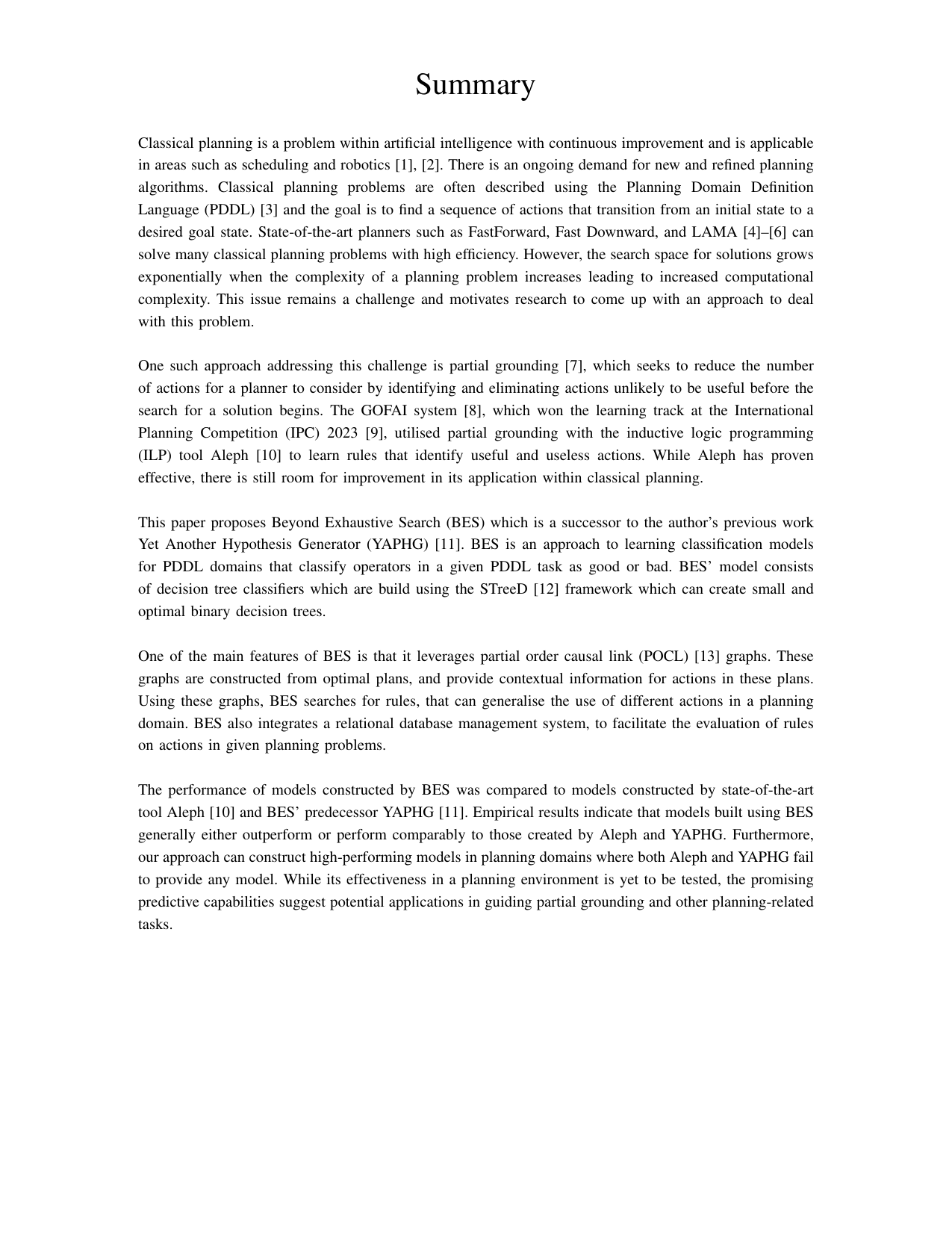
Beyond Exhaustive Search Rule Learning with Informed Search
Term
4. term
Education
Publication year
2024
Submitted on
2024-06-06
Abstract
Classical planning is a core problem in artificial intelligence. Planners, which are programs that solve classical planning problems, often faces challenges due to the exponential growth of the search space for solutions as the number of actions and states increases. This paper introduces Beyond Exhaustive Search (BES), an approach designed to address this issue by learning classification models that can effectively classify ac- tions in planning problems as either good or bad. BES utilises an adapted Inductive Logic Programming (ILP) approach and partial order causal link (POCL) graphs to derive additional knowledge from solved planning problems, in order to learn relevant rules. Utilising a relational database management system (RDBMS) for rule evaluation, BES constructs its classification models using the decision tree framework called STreeD, known for creating small and optimal binary decision trees. Empirical results show, that BES not only achieves comparable results to the state-of-the-art ILP tool Aleph and its predecessor YAPHG but also succeeds in scenarios where both Aleph and YAPHG fail to produce models. Although the practical integration of BES into planning systems remains to be fully explored, the promising predictive capabilities suggest potential applications in guiding partial grounding and other planning-related tasks.
Documents
